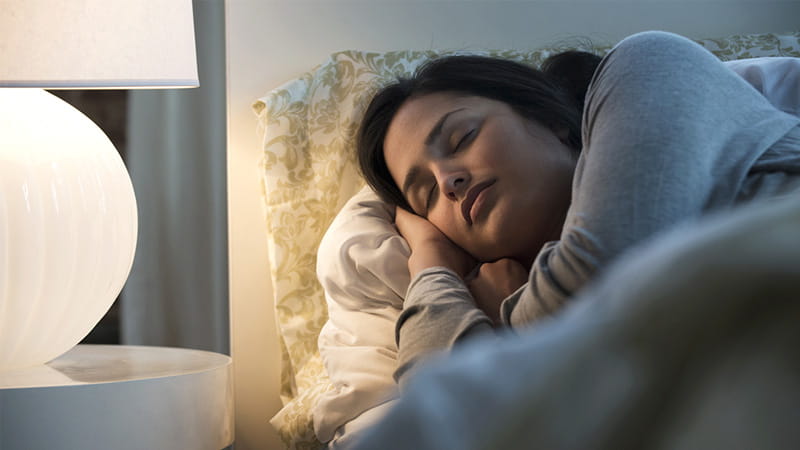Sleep

Benefits of a good sleep include:
- Healing and repair of cells, tissues and blood vessels
- Better brain function including alertness, decision-making, focus, learning, memory, reasoning and problem solving
- More creativity and productivity
- Improved mood and energy
- Healthy growth and development for kids and teens
- Better ability to build muscle
- Quicker reflexes
- Less risk of chronic disease
- Stronger immune system
Poor sleep may put you at higher risk for:
- Alzheimer’s disease
- Cardiovascular disease
- Cognitive decline and dementia
- Depression
- Diabetes
- High blood pressure
- High blood sugar
- High cholesterol
- Infections
- Obesity
Poor sleep can cause:
- Accidents
- Breathing problems such as sleep apnea
- Hormone imbalance
- Memory and cognitive issues
- Increased appetite and unhealthy eating
- Inflammation
- Stress
- Weight gain
How to Sleep Better
Week 1
Be active during the day to help reduce stress and sleep better.
Add physical activity into your daily routine. Walking counts! It can relieve stress, boost brain function (including your memory and attention) and help you sleep better at night.
Try mindfulness, meditation or deep breathing to manage stress.
If exercising too close to bedtime keeps you awake, try working out earlier in the day and doing relaxing yoga in the evening.
Week 2
Establish a nighttime routine including a bedtime alarm.
Go to bed and wake up about the same time each day to sleep better.
Set a daily bedtime alarm, counting backward 7-10 hours (depending on how much wind-down time you need) from your ideal waking time.
Stick to your bedtime by establishing a nightly routine with plenty of time to wind down.
Week 3
Create a morning routine with a positive activity.
Start your morning with a healthy activity, such as a walk around the block, meditation, gratitude journaling or yoga. Looking forward to a few moments of “me time” could make it easier to get up.
Break the snooze button habit. Sleeping past your alarm can make you groggier in the morning.
Try habit chaining. Connect the new habit to something you do automatically every morning. For example, do a few yoga moves right after you brush your teeth.
Week 4
Charge your phone and other devices away from your bed.
Try reading, listening to music or catching up on a podcast instead of scrolling and swiping into the night. The bright blue light could be sabotaging your sleep cycle.
Choose sleep over getting one more thing done. Good sleep can help you be more productive and accomplish more during the day.
Go low-tech. Try an old-school alarm clock and stash a pen and notepad by your bed so you don’t reach for your phone when inspiration strikes.
If you’ve tried everything and still can’t sleep well, you may have a sleep disorder. Talk to your doctor or health care professional.
Stroke and Sleep Apnea
Sleep apnea is part of breathing disorders. This chronic condition results in partial or complete cessation of breathing many times throughout the night, resulting in daytime sleepiness or fatigue. It can affect people of all ages, including children, but the risk factors include being male, overweight and over age 40.
More than half of the people who have a stroke also have sleep apnea. Here are some common signs and symptoms:
- Snoring (usually observed or reported by sleep partner)
- Disrupted sleep or waking up frequently during the night, gasping for air
- Daytime fatigue and feeling tired
- Morning headache
- Problems with concentration and memory